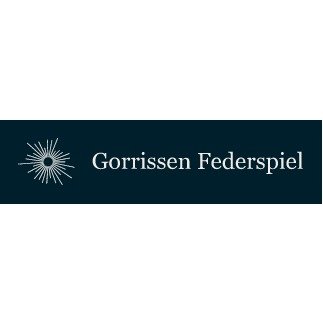Best Employer Lawyers in Denmark
Share your needs with us, get contacted by law firms.
Free. Takes 2 min.
Or refine your search by selecting a city:
List of the best lawyers in Denmark
About Employer Law in Denmark
Employment law in Denmark is designed to foster a balanced and fair working environment where the rights of both employers and employees are safeguarded. It encompasses many areas, including hiring practices, workplace safety, discrimination, contracts, wages, working hours, and termination of employment. Danish employment law aims to promote transparency, equality, and respect for mutual agreements, ensuring harmonious labor relations throughout the country. Social dialogue between employers, employees, and the government is emphasized in formulating these laws, reflecting collective agreements within the labor market.
Why You May Need a Lawyer
There are numerous situations in which an employer may require legal assistance. These can include disputes over contract terms, issues concerning employee termination, matters of workplace safety, questions of compliance with labor laws, or handling allegations of workplace harassment or discrimination. Additionally, navigating regulatory requirements during business expansion, mergers, and acquisitions or restructuring may necessitate legal counsel to ensure due diligence and regulatory compliance. A lawyer can provide valuable guidance, helping employers understand their rights and obligations under Danish law and represent their interests in negotiations or legal proceedings.
Local Laws Overview
Danish employment laws are characterized by comprehensive protections for workers and detailed procedural requirements for employers. Key aspects include:
- Working Hours: The standard full-time workweek is set at 37 hours, with regulations on overtime and breaks clearly stipulated.
- Holiday Entitlements: Employees are entitled to five weeks of paid holiday annually, under the Holiday Act.
- Contracts of Employment: Employers must provide written employment contracts detailing essential terms of employment.
- Termination Procedures: Employee dismissals must adhere to specific notice periods and protocols to be considered fair and lawful.
- Equality and Anti-Discrimination: Laws prevent discrimination based on gender, age, race, disability, and other protected characteristics, fostering workplace equality.
- Health and Safety: Employers must ensure safe working conditions, adhering to regulations and conducting risk assessments.
- Collective Agreements: A significant portion of employment terms may be influenced by collective bargaining agreements between unions and employer associations.
Frequently Asked Questions
What are an employer's obligations regarding workplace safety?
Employers must ensure a safe working environment, comply with the Danish Working Environment Act, conduct risk assessments, and provide the necessary safety training and equipment to employees.
Can an employee be dismissed without cause?
No. While Danish employment law supports the "at-will" principle, dismissals must adhere to fairness protocols and notice requirements to prevent wrongful termination claims.
What is the role of collective agreements in employment law?
Collective agreements play a crucial role in Danish employment law, setting terms for wages, working hours, and conditions, and are negotiated between trade unions and employer associations.
How are disputes between employers and employees typically resolved?
Disputes are generally resolved through negotiations, mediation, or through the Labour Court, which specializes in handling employment-related conflicts.
What documentation should be provided to employees?
Employers must provide a written employment contract detailing key terms such as job description, salary, working hours, holiday entitlement, and notice periods.
Are non-compete clauses enforceable in Denmark?
Non-compete clauses are enforceable but must be reasonable in scope and duration, typically not exceeding six months post-employment, and compensation must be provided to the affected employee.
How is harassment managed in the workplace?
Harassment is prohibited, and employers must have policies in place to prevent, address, and resolve incidents, alongside appropriate channels for reporting and resolution processes.
What are the latest changes in Danish employment law?
Recent changes include updates to data protection standards under GDPR, increased focus on mental health at work, and evolving family leave policies to promote work-life balance.
Are employees entitled to parental leave?
Yes, employees are entitled to substantial parental leave benefits, which include maternity, paternity, and parental leave, each with specific durations and benefits outlined by law.
What should employers know about the recruitment process?
Employers must ensure equal opportunity, prevent discrimination, and remain compliant with data protection regulations, ensuring all recruitment practices adhere to fair labor standards.
Additional Resources
For further information and support, consider the following resources:
- Danish Working Environment Authority: Provides guidance on health and safety regulations.
- Confederation of Danish Employers (DA): Offers legal advice and updates on employment law and collective agreements.
- The Danish Ministry of Employment: Responsible for developing employment legislation and policies.
- Trade Unions: Offer resources and support related to employee rights and employer obligations.
Next Steps
If you require legal assistance in employment matters, consider these steps:
- Identify your specific legal needs or concerns regarding employment issues.
- Research potential lawyers or law firms specializing in employment law in Denmark.
- Contact multiple legal professionals to understand their expertise, approach, and fee structures.
- Choose a lawyer who aligns with your requirements and schedule a consultation to discuss your situation in more detail.
- Prepare any necessary documentation or information pertinent to your case before your meeting with the legal advisor.
Lawzana helps you find the best lawyers and law firms in Denmark through a curated and pre-screened list of qualified legal professionals. Our platform offers rankings and detailed profiles of attorneys and law firms, allowing you to compare based on practice areas, including Employer, experience, and client feedback.
Each profile includes a description of the firm's areas of practice, client reviews, team members and partners, year of establishment, spoken languages, office locations, contact information, social media presence, and any published articles or resources. Most firms on our platform speak English and are experienced in both local and international legal matters.
Get a quote from top-rated law firms in Denmark — quickly, securely, and without unnecessary hassle.
Disclaimer:
The information provided on this page is for general informational purposes only and does not constitute legal advice. While we strive to ensure the accuracy and relevance of the content, legal information may change over time, and interpretations of the law can vary. You should always consult with a qualified legal professional for advice specific to your situation.
We disclaim all liability for actions taken or not taken based on the content of this page. If you believe any information is incorrect or outdated, please contact us, and we will review and update it where appropriate.
Browse employer law firms by city in Denmark
Refine your search by selecting a city.

















